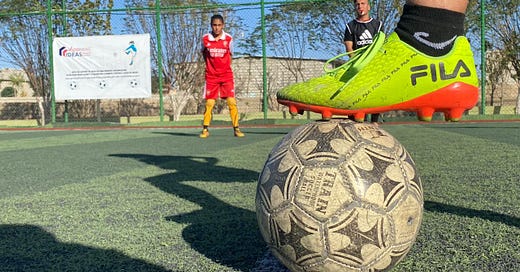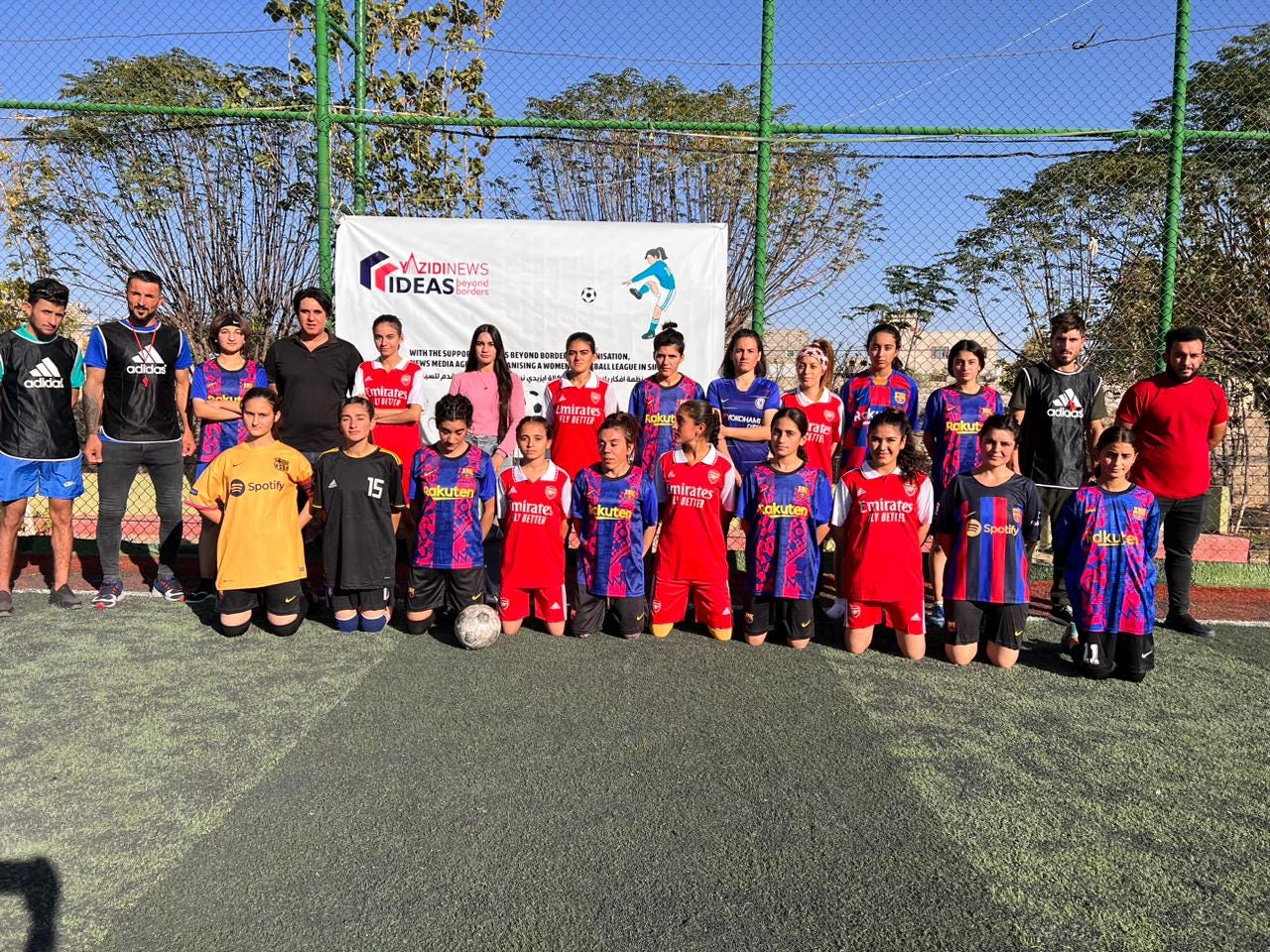Stories of Survival
Yazidi News is inspiring women and girls to rebuild their lives after ISIS with a message to the world that they will not be beaten.
After so much suffering, the sight of young Yazidi women scoring goals on a Sinjar football pitch is a welcome respite. The match was the first game in a new women’s league organized by Yazidi News, which aims to help women and girls start their life again after the horrors they endured under ISIS.
“People here feel traumatized, and the situation in Sinjar isn’t safe, even now. The football league reminds them that there are still things to enjoy,” says Faris Zandinan, director general of the Yazidi News Media Agency, which organized the event. “People here need hope, something to make them feel safe and want to live again,” says Zandinan, who also plans to host photography workshops and provide startup support to aspiring entrepreneurs in the community.
Life has not been easy in the aftermath of the ISIS genocide as Yazidis struggle to come to terms with the atrocities inflicted on their community. Many refuse to return from exile, scarred by the horror they endured when ISIS swept into their northern Iraq heartland in August 2014, killing an estimated 5,000 Yazidi men and forcing thousands of women and girls into sexual slavery.
They have been here before. Saddam Hussein persecuted Yazidis during his brutal Arabization campaign, and the violence continued even after the fall of his regime. “We have suffered many genocides – I have seen two in my 30 years,” says Zandinan, who launched Yazidi News to document the lives of people in his community and show the world they won’t give up. “Our main purpose is to tell the world we are staying, we are alive, we are here, and we will not disappear.”
The platform was launched in the aftermath of 2014 to raise the collective voice of Yazidis in a country where they have been relentlessly sidelined and oppressed. Staffed by volunteers, the team of 22 journalists publishes stories on Facebook, Twitter, YouTube, Instagram, Twitter and Telegram about issues affecting the community in Kurdish, English and Arabic, focusing particularly on survivors of the ISIS genocide.
These, Zandinan says, are the stories they prioritize because they bring hope to those struggling to overcome the horrors they endured. While international news reports have shown Yazidi women being welcomed back to their communities, some in Sinjar say they are still ostracized and excluded by elements of society because of the stigma attached to their abuse. “Many of the women and girls haven’t had the chance to speak freely about what happened to them… it’s important to document their stories to show there is no shame in what happened,” says Zandinan.
Ideas Beyond Borders is supporting Yazidi News through an Innovation Hub grant, enabling them to continue covering stories of survival and other issues that matter to the Yazidi community while hosting events like the football league that provide people with a glimmer of hope as they try to rebuild their lives.
“The Yazidis are some of the most resilient people in the world. Helping Yazidi News build not just a platform to share their stories, but a community that can foster that resiliency is some of the most important work we have done in the region,” says Faisal Saeed Al Mutar, founder and president of Ideas Beyond Borders.
Listening to these accounts, again and again, is grueling, but Zandinan’s team are determined to keep bringing their ordeals to light. “It’s a message to survivors that it’s not the end, you can start over and begin a new life,” he says. “It’s vital to document these accounts for the historical record, so it never happens again.”







